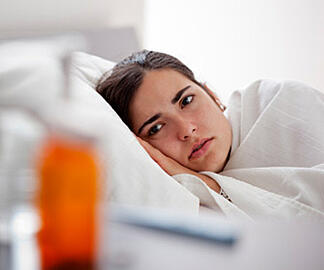News
The relationship between Sleep Apnea and Depression

With so much talk and attention towards depression and other mental illnesses, do you ever wonder if you may have depression along with sleep apnea?
While it’s not often the case, it is indeed possible, as the two have a very strong connection to each other. Studies have looked further into this for years, and found that some symptoms of depression can indeed apply to sleep apnea symptoms, and vice versa. Insomnia or just having trouble sleeping in general is a strong symptom of depression, however, it does not always relate to sleep apnea.
Interestingly enough, a lot of sleep specialists find that people with untreated sleep apnea tend to have symptoms of depression; therefore they screen for depression in their patients, and even treat it in some cases. A recent study done in Australia determined that for those sleep apnea sufferers that had depression symptoms, treating the sleep apnea found that those symptoms lessened significantly over time.
While it is true that some symptoms of sleep apnea have a strong link to clinical depression, it doesn’t always mean that you actually have it, there are a lot more symptoms to depression than just having trouble sleeping at night.
Want to know exactly how close the symptoms of depression and sleep apnea really are? Check out the table below and see what similarities between the two you can find:
| Depression symptoms Loss of appetite and/or interest in daily activities Loss of energy Feeling moods of anger and/or helplessness or self-pity Trouble sleeping at night Uncharacteristic changes in your sleep routine (such as oversleeping) | Sleep apnea symptoms: Snorting, gasping or struggling to breathe as you sleep Excessive sleepiness during the daytime Constant mood changes and forgetfulness Headaches Waking up with a sore or dry throat |
As different as they are, some of the symptoms sound very closely related, right?
Mental illness of any kind is never something to look past. Be sure to speak to your doctor if you think you have either depression or untreated sleep apnea.


